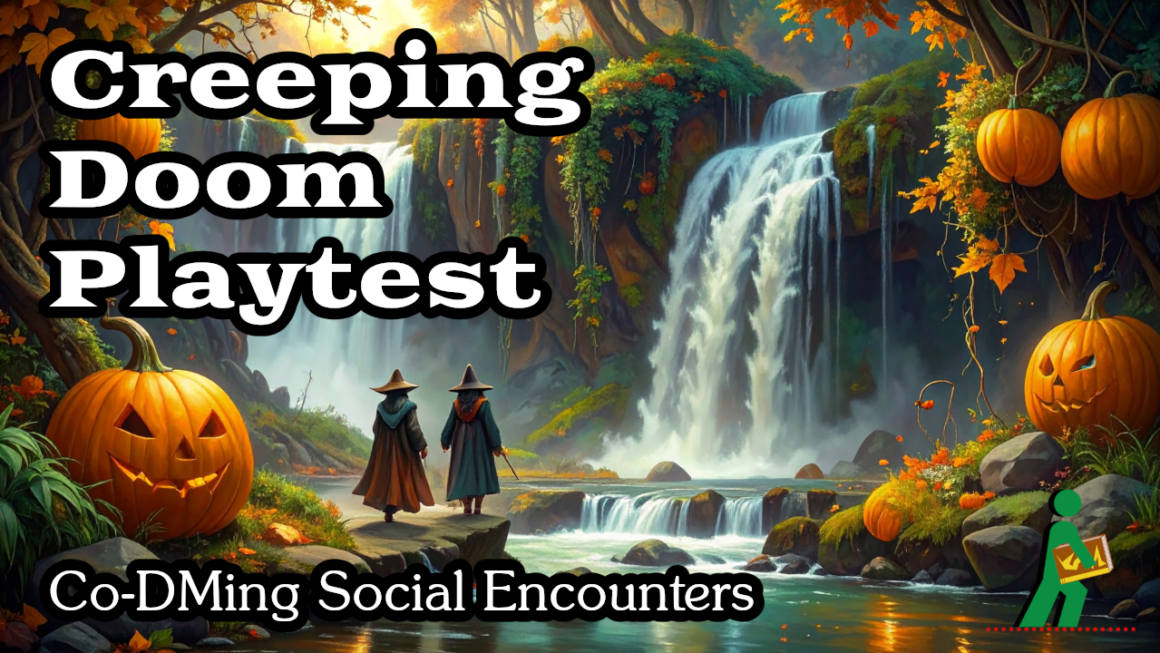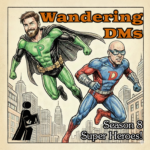
Creeping Doom Playtest | Co-DMing Social Encounters | Wandering DMs S06 E26

Dan & Paul give a postmortem on running their fourth Dungeon Design Dash product, Creeping Doom of the Pumpkin King, in a co-DM fashion. It’s their first DDD wilderness adventure, and surprises abound! What happens when the party pursues mostly social encounters with a dedicated Adversary DM? Can two DMs swap out musical-chairs NPCs without going crazy? Does D&D always revert back to its horror roots?
A playtest is the process by which a game designer tests a new game for bugs and design flaws before releasing it to market. Playtests can be run “open”, “closed”, “beta”, or otherwise, and are very common with board games, collectible card games, puzzle hunts, role-playing games, and video games, for which they have become an established part of the quality control process. An individual involved in testing a game is referred to as a playtester.
An open playtest could be considered open to anyone who wishes to join, or it may refer to game designers recruiting testers from outside the design group. Prospective testers usually must complete a survey or provide their contact information in order to be considered for participation. A closed playtest is an internal testing process not available to the public. Beta testing normally refers to the final stages of testing just before going to market with a product, and is often run semi-open with a limited form of the game in order to find any last-minute problems. With all forms of playtesting it is not unusual for participants to be required to sign a non-disclosure agreement, in order to protect the game designer’s copyrights.
Watch the livestream creation of Creeping Doom of the Pumpkin King here
This description uses material from the Wikipedia articles “Playtest“, which is released under the Creative Commons Attribution-Share-Alike License 3.0.

